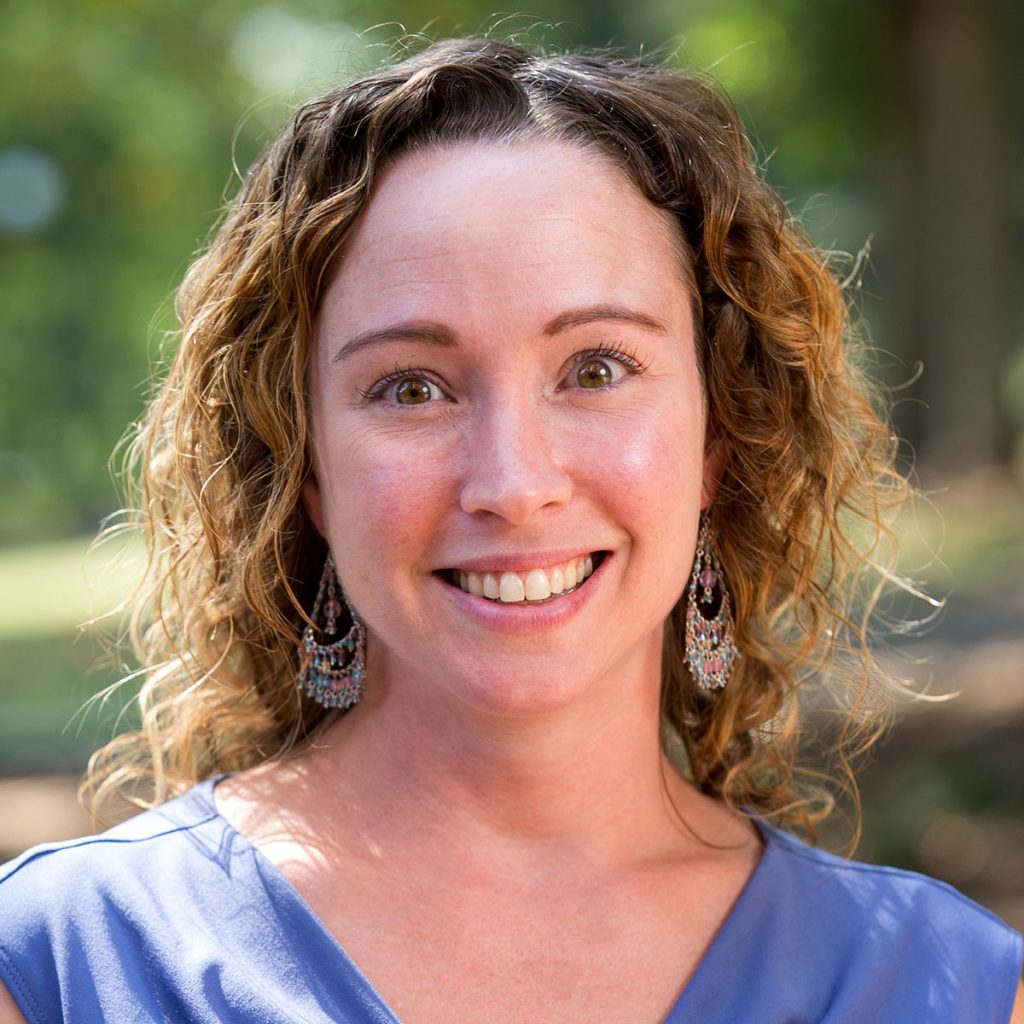 Download High Resolution
Download High Resolution
Elizabeth Blair Gross
Assistant Professor of Psychology, Chair of Psychology, Social and Behavioral Sciences Division Head
| Credentials: | B.A., University of Virginia M.A., University of Virginia Ph.D., University of Virginia |
| Associated Departments: | Cognitive Science, Psychology |
| Office: | Psychology 1 |
| Phone: | 434-947-8548 |
| Email: | egross@randolphcollege.edu |
News Headlines
- Morality and risk-taking research continues during Summer Research Project
- Randolph’s Blair Gross published in ‘Frontiers in Psychology’
- A tale of two projects: Summer Research studying actions and perceptions in the world
- Taking the virtual leap
- Gross joins Randolph psychology faculty
What excites me the most about the Psychology program at Randolph College is how closely I get to work with undergraduate students. I am passionate about teaching psychology, and I love the small, intimate, and supportive classrooms that enable me to not only teach but mentor my students as well. I currently teach Introduction to Psychology, Cognitive Psychology, Research Methods, and Myths and Controversies in Psychology. Most of all, I try to incorporate research into all of my classes, either by emphasizing rigorous evaluation of scientific studies and their conclusions or having students design and conduct their own research studies. I find students really are the creative engine in the field!
As much as I love teaching, I also love being a scientist. In research, I am primarily interested in how our social environments shape basic cognitive processes, and how individuals incur costs and benefits in social relationships. I find it fascinating that our visual systems reconstruct the world around us, but it is not always accurate. For example, the steepest paved road in Lynchburg, VA is, by law, 9 degrees, yet it looks drastically steeper! In fact, there is good evidence that what we see is shaped by both our ability to act in the world and, more surprisingly, who surrounds us. Distances look farther and hills look steeper when we are physically exhausted, and thinking about a supportive friend literally makes us see the world as easier to navigate. My research has found that even an abstract social resource, imagining supportive others, provides physiological benefits and alters visual perception. I am excited to continue this work with students in an effort to directly quantify how individuals perceive and relate to their social network in an effort to establish what aspects of the social environment are responsible for these direct changes in physiology and cognitive processes.
When I’m not working, you will often find me training for long distance runs, catching up on my reading list, or watching football.